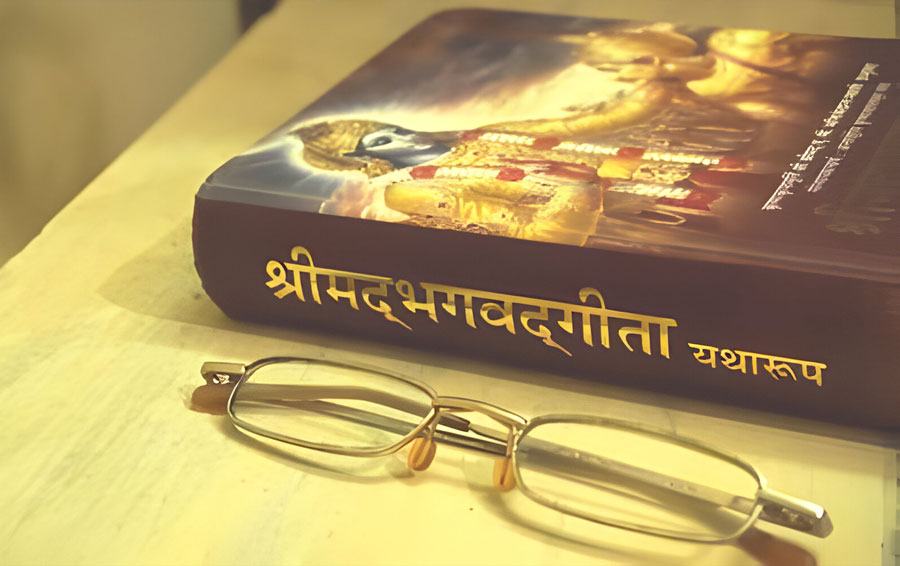
The Bhagavad Gita, a central text in Hinduism, offers guidance on many aspects of life, but its stance on vegetarianism isn't entirely black and white. Let's delve into what the Gita says (or doesn't say) about non-vegetarian food.
The Bhagavad Gita primarily focuses on fulfilling one's Dharma (duty) and attaining liberation. It emphasizes selfless action and performing your duties without attachment to the outcome. While it mentions food, the focus isn't on dietary restrictions.
In the Bhagavad Gita, there's a story about Lord Krishna giving advice to a warrior prince named Arjuna. Even though the book doesn't directly say that eating meat is bad, it talks a lot about being kind and not hurting others. It's like saying we should treat animals nicely and think about how our actions affect them.
Ahimsa and Compassion: The Lessons from bhagavad gita that all living beings are interconnected and should be treated with kindness and respect. Therefore, while non-vegetarianism is not outrightly condemned, it's encouraged to minimise harm and avoid unnecessary violence towards animals.
Karma and Consequences: According to the Bhagavad Gita, every action has karmic consequences. Engaging in violence or causing suffering to other beings, including animals, generates negative karma. Thus, individuals are urged to act with mindfulness and consider the ethical implications of their choices, including dietary practices.

Do You know: What Foods You Can Eat and What Not to Eat During Navratri
Sattvic Diet: The Bhagavad Gita promotes a sattvic (pure) diet as conducive to spiritual growth and well-being. This diet primarily consists of vegetarian foods, such as fruits, vegetables, grains, and dairy products. While not explicitly prohibiting meat consumption, sattvic diet principles align with values of compassion and non-harm towards animals.
Personal Choice and Discipline: Ultimately, the Bhagavad Gita emphasizes individual freedom and responsibility in dietary choices. While vegetarianism is encouraged for its ethical and spiritual benefits, the text acknowledges that dietary practices may vary based on cultural, geographical, and personal factors.
The concept of Gunas (qualities) plays a significant role in Hinduism. The Gita mentions three Gunas: Sattva (purity, goodness), Rajas (passion, activity), and Tamas (inertia, darkness). Certain foods are believed to influence these Gunas. Vegetarian food is generally considered Sattvic, promoting clarity and peace, while meat is sometimes associated with Tamas. However, the Gita doesn't explicitly link food choices to spiritual progress.
Also Read: The Significance of the Peepal Tree in Hinduism
The Bhagavad Gita doesn't explicitly forbid eating meat. However, it does emphasize offering pure food and avoiding attachment to the act of eating. Ultimately, the choice of vegetarianism is a personal one, influenced by individual beliefs and interpretations of the text.
Yes, dietary choices don't define your faith. Focus on your Dharma and following the core principles of the religion.
No, the Bhagavad Gita doesn't explicitly prohibit eating meat, but it promotes values of compassion and non-violence towards all living beings.
Vegetarianism is not mandatory, but it is encouraged as a means to cultivate sattvic qualities and minimize harm to animals.
Yes, one can follow the teachings of the Bhagavad Gita and still eat meat, but it's advised to do so mindfully and with consideration for ethical and karmic implications.
A sattvic diet consists of pure, vegetarian foods that promote physical health and spiritual well-being. While not explicitly prohibiting meat, sattvic diet principles align with values of compassion and non-harm towards animals.
For more Interesting topics follow us on Instagram
Author :